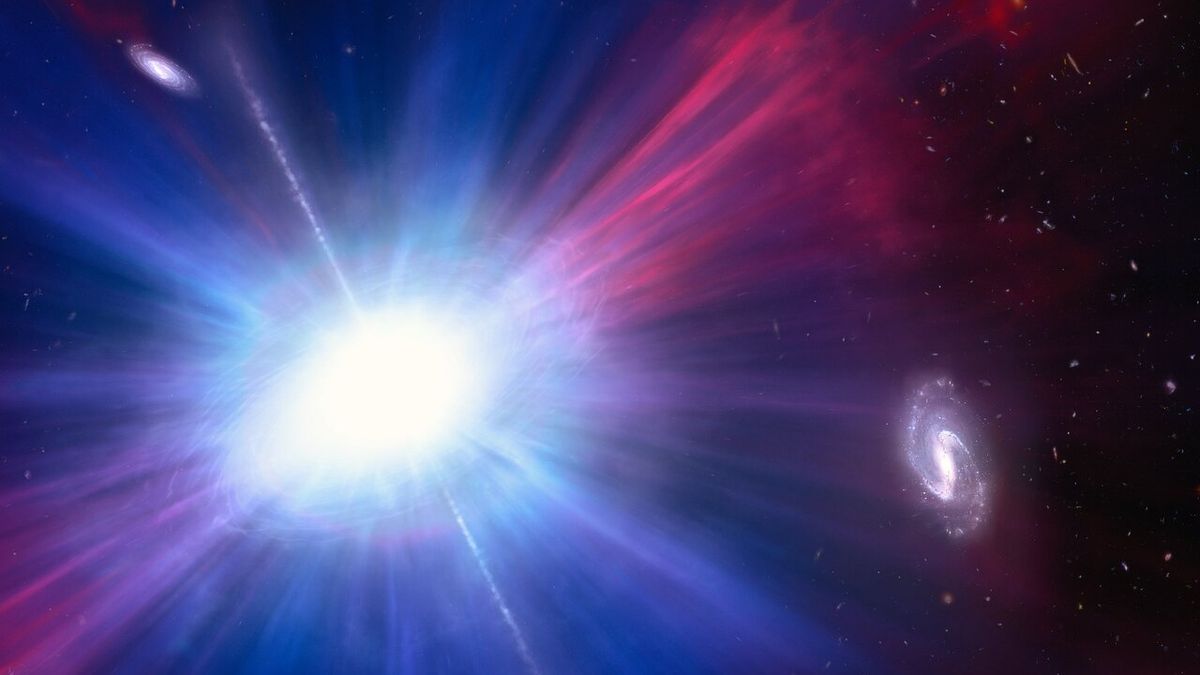Science
Related: About this forumHubble Telescope just witnessed a massive intergalactic explosion and astronomers can't explain it
Last edited Sun Oct 8, 2023, 11:36 AM - Edit history (1)
By Keith Cooper published 1 day ago
The leading theories involve stars being ripped apart by black holes or the merger of neutron stars.

An artist's impression of the LFBOT exploding in the space between galaxies. (Image credit: NASA/ESA/NSF's NOIRLab/M. Garlick/M. Zamani)
A mysterious cosmic explosion created a brilliant flash of light in the space between two galaxies over 3 billion light-years away.
The optical flash, which was one of the brightest bursts of blue light in the universe but lasted only a few days, is the latest example of a rare breed of brief astronomical event called a luminous fast blue optical transient (LFBOT).
LFBOTs are a complete mystery. The first one to be discovered wasn't observed until 2018. Designated AT2018cow, it was positioned in the spiral arm of its galaxy 200 million light-years away. Nicknamed "the Cow," it was up to 100 times brighter than an ordinary supernova, and was also bright in radio waves, ultraviolet and X-rays. If it was a supernova, it behaved very oddly. Usually, a supernova stays bright for weeks, or even months, and has a recognizable spectrum. Yet the Cow faded after a few days.
Similar bursts of light are discovered at a rate of about one per year, and they are nicknamed after animals based on the last three letters in their designation. Other LFBOTs have been dubbed the Camel, the Koala and the Tasmanian Devil. This latest LFBOT, detected by the Zwicky Transient Facility at Palomar Observatory in California on April 10, is designated AT2023fhn and, consequently, has been nicknamed "the Finch."
More:
https://www.space.com/intergalactic-space-explosion-lfbot
PJMcK
(22,069 posts)There are new observations and questions all the time! The universe is full of secrets and Science uncovers them one tiny petal at a time.
Remarkable!
PoindexterOglethorpe
(25,929 posts)I'm going to have to ask My Son The Astronomer about this.